On October 6, 2023, the Contemporary Chinese Film and Television Review Workshop (Phase 1) -Symposium on the Aesthetic Significance of the Documentary Film “Above Water”, was grandly held at ZJU’s Zijingang Campus. It was hosted by China Literature and Art Criticism Base at Zhejiang University and organized by ZJU’s College of Media and International Culture.
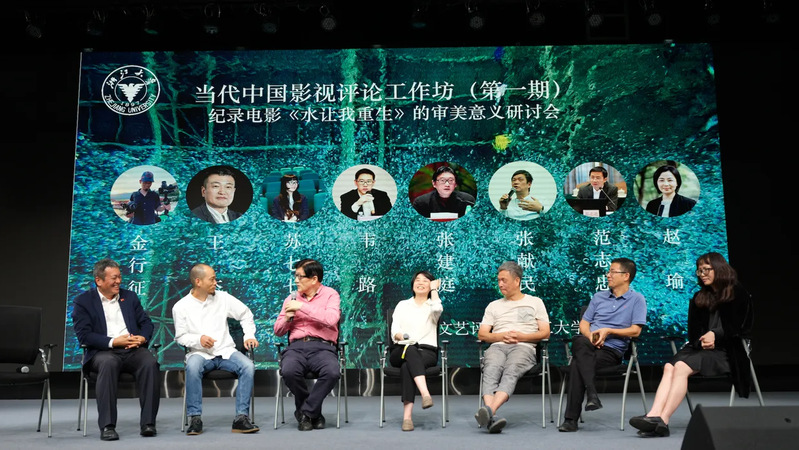
Part 1: Opening Ceremony, Film Watching of “Above Water” and the Following Seminar
The opening ceremony of the workshop was presided over by Professor Wang Jie, Director of China Literature and Art Criticism Base at Zhejiang University. And wonderful speeches were delivered by Wei Lu, Dean of ZJU’s College of Media and International Cultureand Distinguished Professor of Changjiang Scholars Programs, as well as Gao Feng, Chairman of Documentary Academic Committee of China Television Artists Association and former Vice President of CCTV.
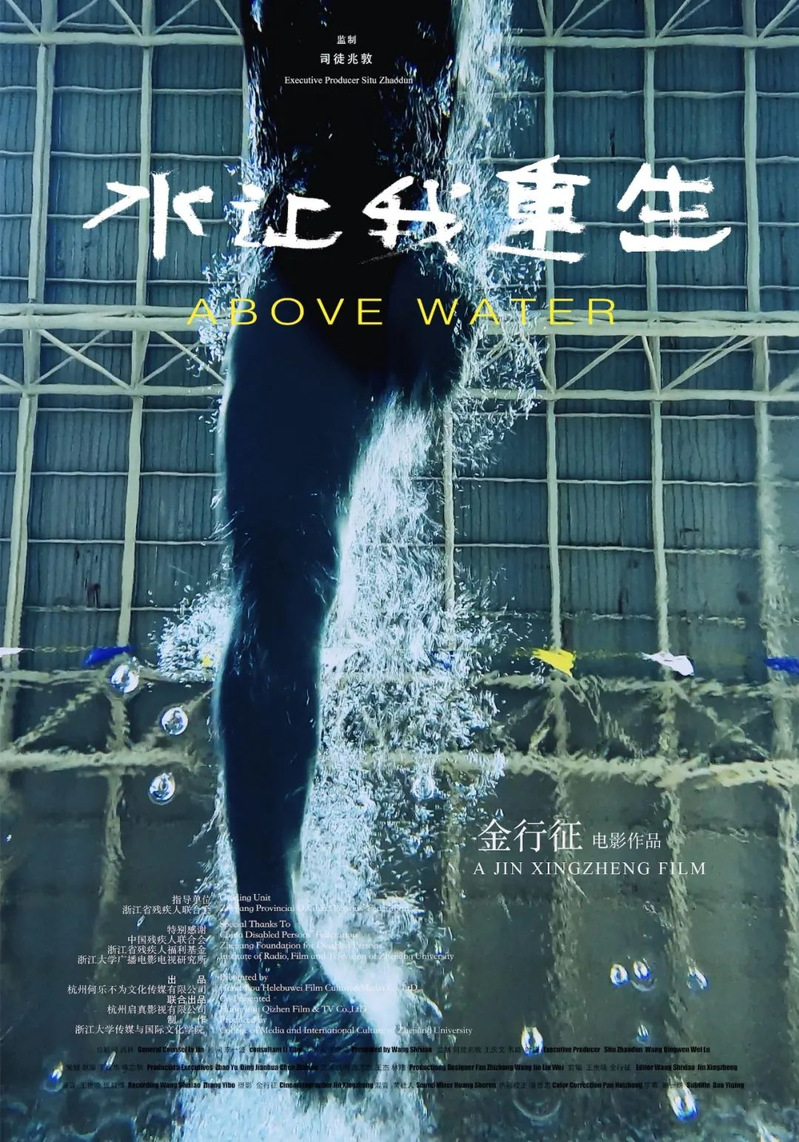
“Above Water” was filmed by director Jin Xingzheng who tracked multiple athletes of the national teams over five years, documenting the details of their aquatic training as well as their daily routines and family interactions. The film involves the audience into a reflection on the meaning of life: what are the so-called "sound" and "unsound"? When and under what circumstances can "disabled" athletes truly have full power to define themselves?
As is put by the film, does water bring me back to life? Who made me reborn? Who causes whom to come alive? Water is the origin of life, and from the perspectives of natural beauty, anthropology, and contemporary evolution, we have always believed that water has an intrinsic affinity with humans. For disabled athletes from the national swimming and kayaking teams, the combination of all the water-related experiences gives them the opportunity to be reborn. The disabled athletes, their families and coaches, as well as the filming teams also come together as a result, forming a concrete and realistic little utopia in a specific time and space. It is an excellent practice of applying anthropology and sociological field research to contemporary film production.
After the film watching, Professor Zhao Yu, Vice Dean of ZJU’s College of Media and International Culture, hosted a seminar and the guests were invited to share their reviews. During the following Q&A session, Director Jin Xingzheng provided detailed answers to the questions raised by the teachers and students on the spot.

Gao Feng praised “Above Water” as a brilliant star among China's documentary films. “The ability of universities to produce such an excellent film is invaluable for teaching and for the talents we need to cultivate. Zhejiang's universities are like the front tides of Qiantang River, acting as a trendsetter of film and television production.”
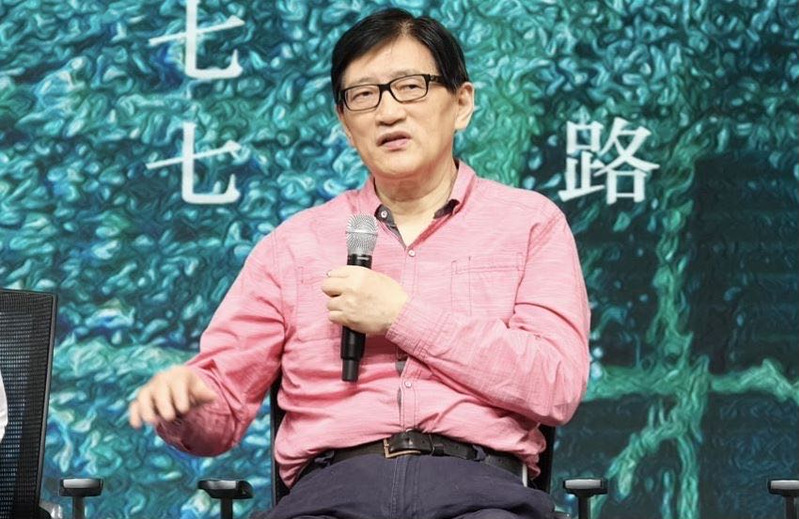
Zhang Jianting, a special researcher from Zhejiang Provincial Government and former Vice Mayor of Hangzhou, added that he was impressed by the spirit of perseverance and patriotism promoted by the film. “It is admirable that people with disabilities do not consider themselves impaired but strive for the glory of our country. Also, institutions such as China Literature and Art Criticism Base should extend to more universities in China, which can give them better insights into social practices.”
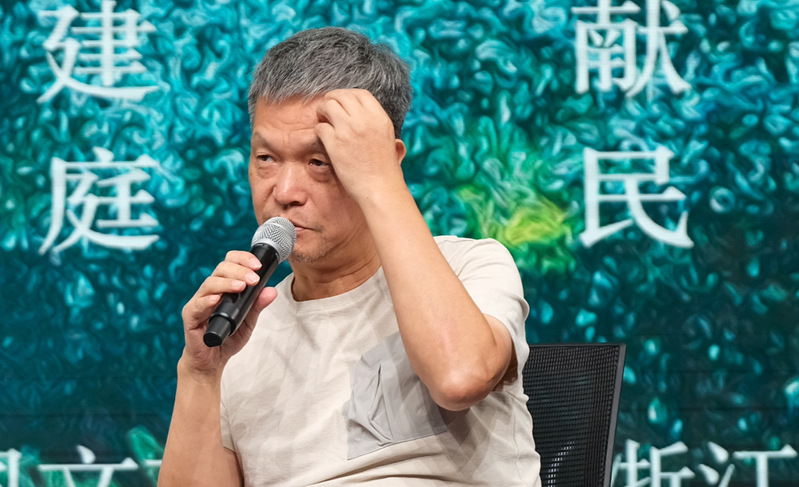
Professor Zhang Xianmin from Beijing Film Academy said, “The conflict between poetics and aesthetics is not only present in translation theories, but also in other theories developed by China itself. It makes us think and these thoughts may be related to the image text of Director Jin Xingzheng.”
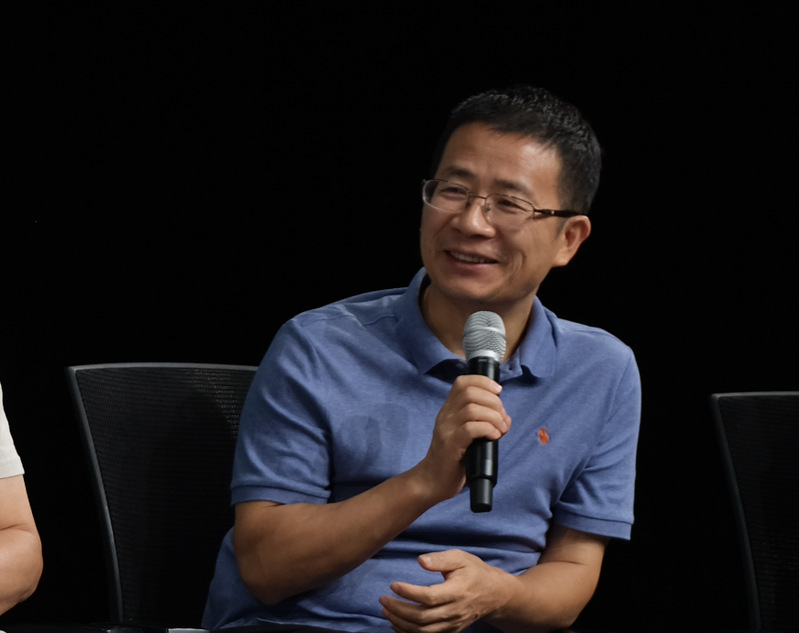
Fan Zhizhong, a leading talent in philosophy and social sciences of the National "Ten Thousand Talents Plan" and Executive Dean of ZJU’s Institute of International Film and Television Development, made a comment, “We have to concede that disabled people are indeed disabled, and they have many hidden pains in life which may be neglected by us normally. We hope that in this sense, 'Above Water' is just Director Jin's first work as a preface followed by sequels. I believe that in the future, it will be the principle of documentary films to use artistic lens language to showcase the power of human nature as well as explore how art gives us insights into human nature behind mainstream discourse, which is also the key to touching people's hearts.”
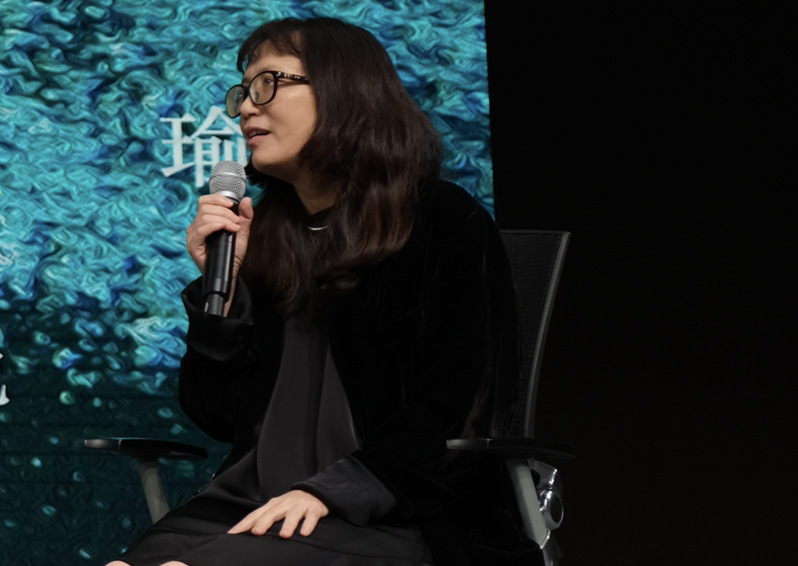
A renowned film critic Su Qiqi expressed her feelings, “What I feel about 'Above Water' is that Director Jin has discovered something that resonates with his own personality and spirits on this theme, which prompts him to continuously explore it. His entire spiritual outlook, as well as the glory of life and the spirit of struggle he upholds, are all very genuine and sincere to him. He projects his inner world onto his subjects, and what he discovers on the subjects refracts onto himself, resulting in this oscillating thing that forms the tone and entire aura of his work.”

The host Zhao Yu summarized, “In fact, the film is still under revision after five years of production. During this process, I communicated with Director Jin and understood that there were a lot of hardships. I feel that he almost devoted all of his life to the documentary industry and is a very pure documentary worker.”
Part 2: Symposium on the Aesthetic Significance of the Documentary Film “Above Water”
The symposium was hosted by Lin Wei, the contact of China Literature and Art Criticism Base at Zhejiang University and Deputy Professor of ZJU’s School of Philosophy. During the symposium, a wide range of experts and scholars conveyed their opinions.
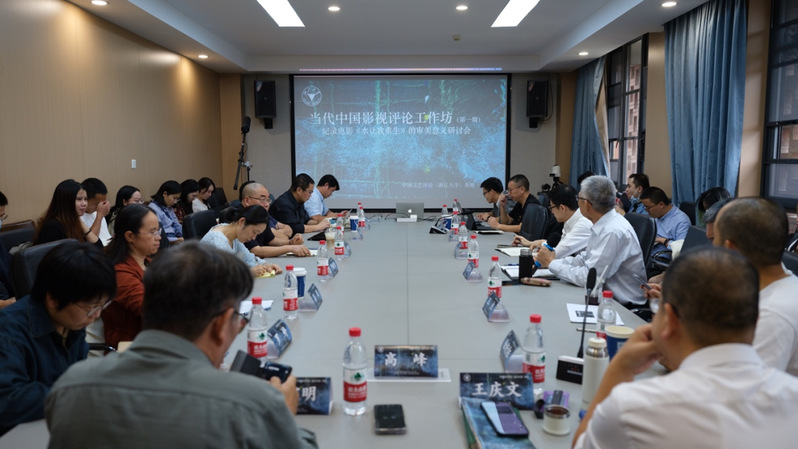
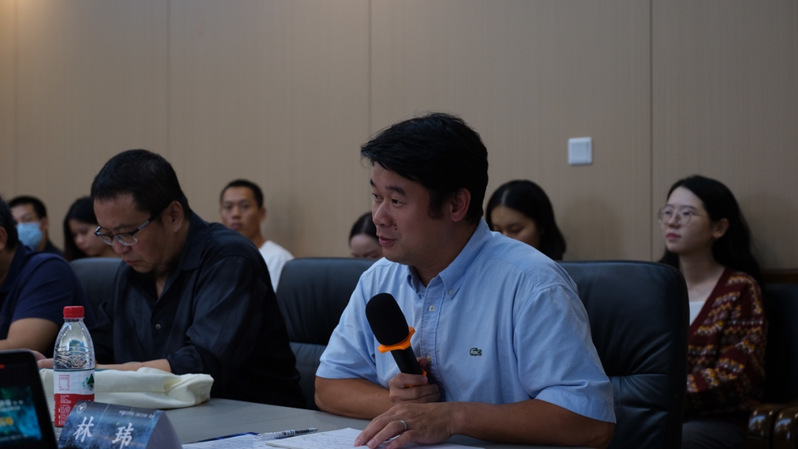
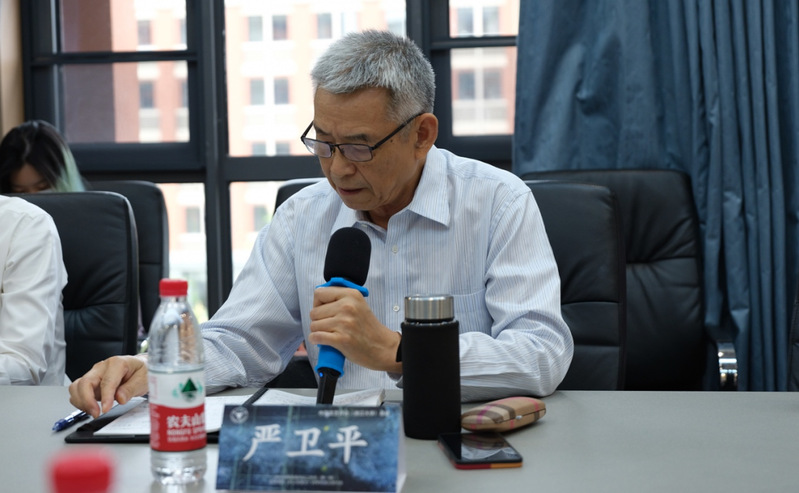
“We have discussed what contributions documentaries can bring to society and what problems they can solve. This is a grand question, and I find it difficult to answer at the moment. But I am convinced that through such documentaries, we can see the diversity of society which may indirectly promote the development of society and the cause of the disabled. At this level, we need to commend Director Jin for his perseverance and efforts. His experience fully presents the practice of the “Four Thousand” Entrepreneurial Spirits of Zhejiang’s Merchants.
The creative power of documentaries in Zhejiang’s universities cannot be underestimated. And these teachers, who I just mentioned, have decades of professional experience and accumulated rich experience of creation. They need to teach while engaging in research, entrepreneurship and creation. Therefore, teachers from Zhejiang’s universities have made great contributions to the development of Zhejiang’s documentaries.” Said Yan Weiping, Vice President and Secretary General of Zhejiang Documentary Association.
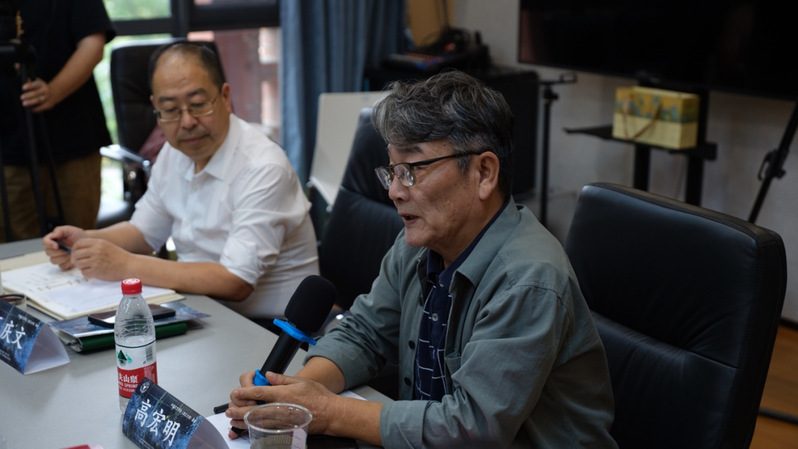
“In ‘Above Water’, there are many fragmentary narratives in sports aesthetics that are worth discussing. Firstly, a crucial element in the film is the diversity of individual experiences. The individual experiences of each character are wonderful and constitute a collective narrative which breaks some traditional narrative concepts. Secondly, after the release of this film, our discussions and comments will trigger some social patterns and perceptions. Thirdly, the fragmentary narratives resist certain stereotypes of the disabled.” Said Gao Hongming, Vice Dean of the School of Integrated Media Image Arts and Sciences at Shanghai University and a documentary director.
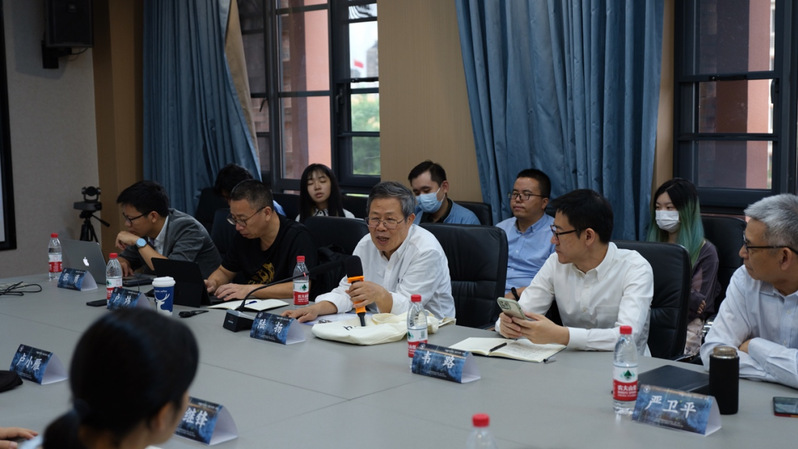
“The aesthetics that we commonly talk about emphasizes completeness, proportion, and symmetry as the standards of beauty. But now, we are challenging this concept. The most beautiful bodies are sometimes those that are incomplete. How can we showcase the beauty of our bodies in this sense? Even if the body is incomplete, as Director Jin mentioned, people with disabilities do not believe that they are missing anything due to the missing parts but still consider themselves complete. This viewpoint is very realistic.
Utopia is an ideal world, but what we see now is a mostly narrative from the director's own perspective. Can we change our perspective and look outward from the interior of this utopia, so that we can have a deeper and richer understanding of it?” Said Lu Yang, Vice President of Chinese Society for Aesthetics and a professor of Fudan University.
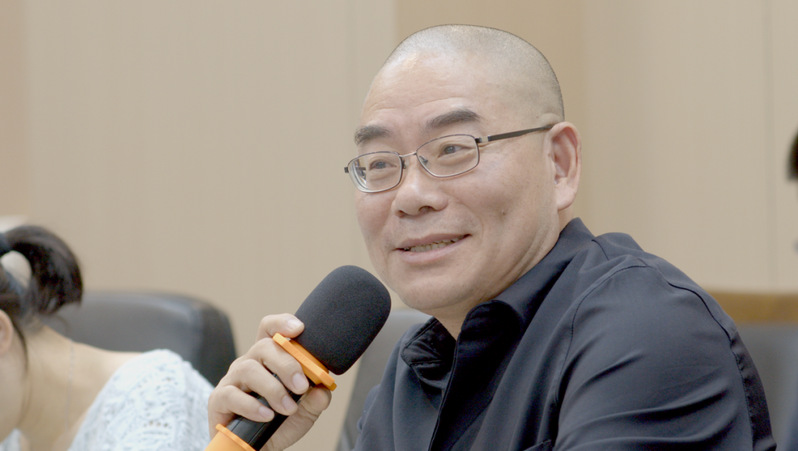
“The life state of disabled athletes in the film has indeed reached the highest level of life that cannot be given up. What does it mean to be unable to give up? It is the kind of behavior that arises from the instinct of life, but transcends it. Whether silkworms binding themselves in cocoons or moths darting into fire, are based on the instinct of life and life is sublimated through burning. I see athletes in water and feel that they are burning their lives in water, thus achieving nirvana and sublimation. I think it is a deeper philosophical meaning that Director Jin hopes everyone can understand.” Said Xu Jifeng, a national first-class director.
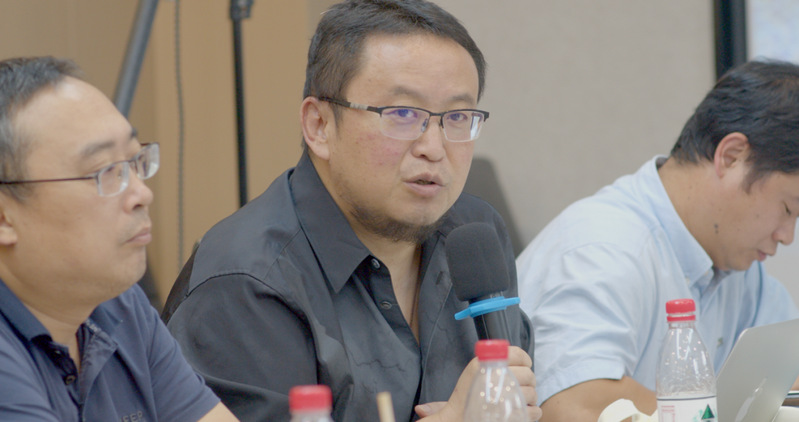
“We gaze at people above the water in a different manner and explore their lives. The anticipation brought by this gaze stems from our curiosity about their plight. We want to explore not only their gold medals and glory of championship, but also the challenges they face. Observing their difficulties and flaws will make this work more profound and impactful.
Director Jin consciously restrained himself and avoided the common approach of overemphasizing conflicts and rhythms in traditional documentaries. Aesthetics, a term introduced from Germany, was originally related to sensory studies. It not only contains aesthetics, but also includes the evaluation of unattractive and even uncomfortable things. Therefore, I believe that this work endows us with another layer of meaning, which is to return aesthetics to the essence of sensory studies.” Said Zhang Hailong, a renowned documentary writer in China.
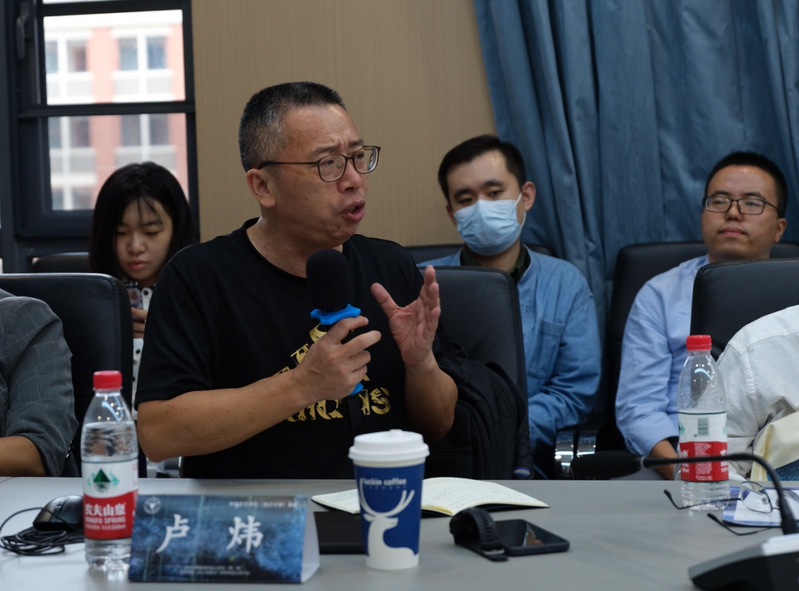
“Firstly, the theme of Director Jin’s film is clear and focuses on realism while adding idealism and humanism to it. Secondly, the storyline is of a linear narrative which is more feasible in practical operation. Thirdly, Director Jin is a versatile talent in directing, filming, and editing. Last but not least, we hope that more documentaries can play a specific role of the college in promoting cultural communication and enlightening society, like the film of Director Jin.” Said Lu Wei, Vice Dean of School of Television Arts at Communication University of Zhejiang.
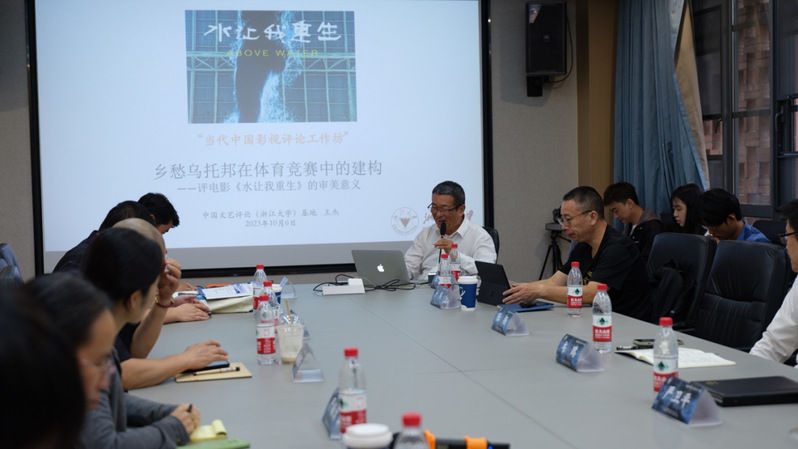
Professor Wang Jie believed that the four athletes in "Above Water" have different disabled bodies but share common beauty. They achieve the sublimation of life through sports, presenting a noble beauty to individual life, and making this group relationship a realistic utopia.
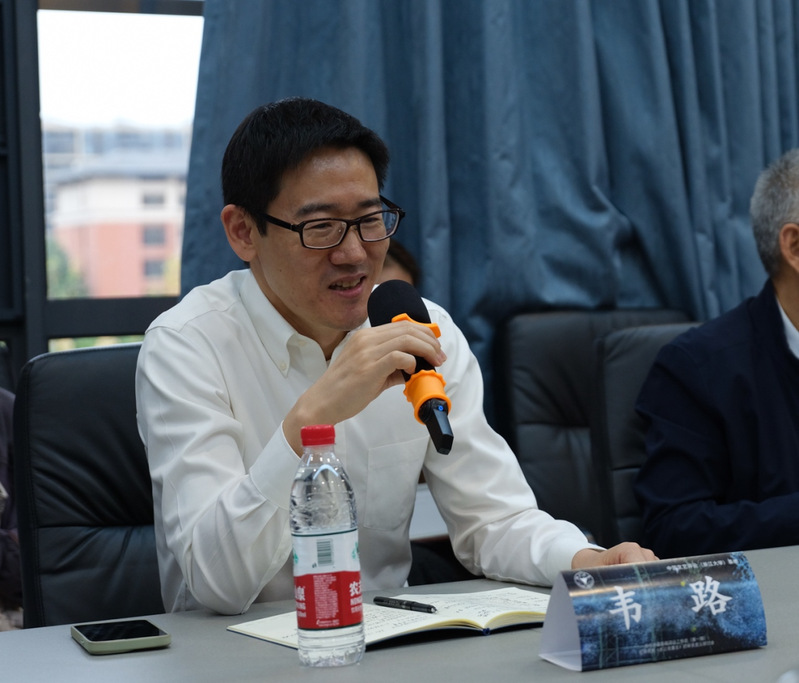
“Every time I watch a documentary, I feel that it has an immense power which the documentary of Jin Xingzheng also brought to me. This power is reflected in several aspects, the first being the theme. This topic not only has strong realistic significance for China, but also is an important issue for the world. Because the public abroad, including the academic community, are very concerned about the issues of the disabled. The documentary also reflects this kind of social concern and humanistic care in China nowadays.
The second aspect is that it tells a very powerful story. He broke some stereotypes, showing both of their tenacious spirit and difficult life in a more balanced and comprehensive way . Therefore, the overall story is a particularly true one.
The third aspect is the image. Many experts just now gave high praises to the scene, so do I think the film have a strong impact on the screen.” Said Professor Wei Lu.
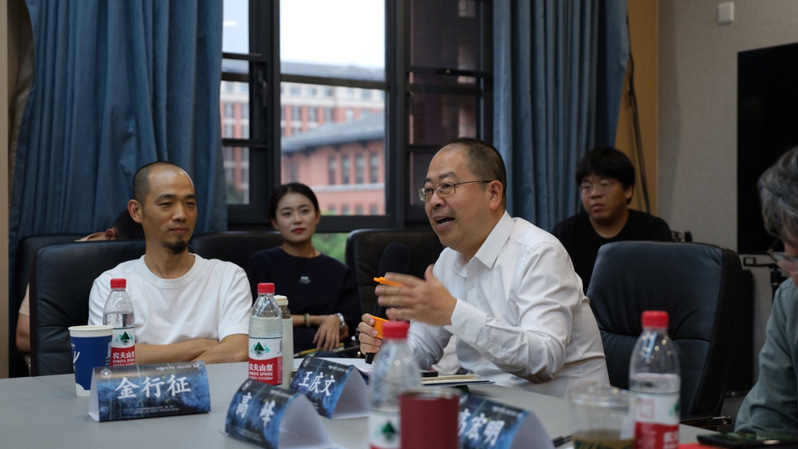
“I think the theme chosen by Director Jin is particularly good. There are two points, one is the disabled, and the other is sports. The comparison between weakness of the disabled and strength of sports is thought-provoking. Also, I think this film is very touching. I believe that truth, kindness and beauty represent aesthetics, which are demonstrated in the film.” Said Wang Qingwen, Party Secretary of ZJU’s College of Media and International Culture.
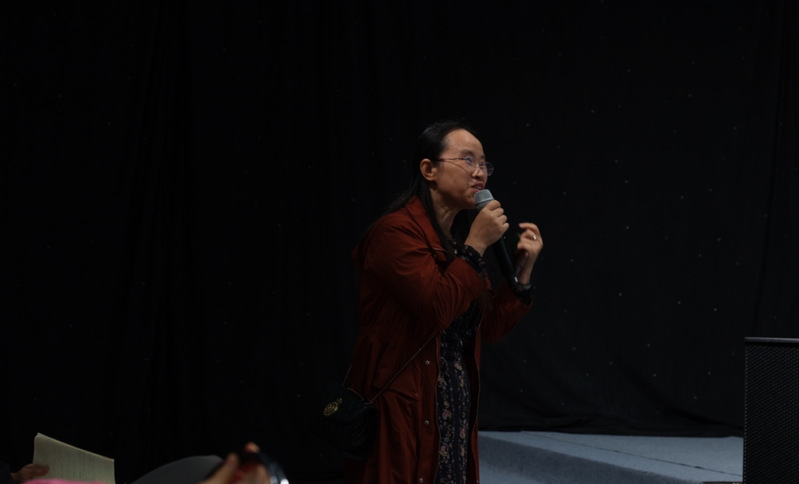
“I noticed some details and aesthetic elements in the film. The reason why I say ‘a sense of ambiguity’ is that when we discuss about people with disabilities, we notice the differences in their experiences and feel a sense of heterogeneity. However, Director Jin's work are exactly the opposite, with his shots focusing on disabled and elderly people, such as "Sister Luo" and "Seven Children Without Arms". Director Jin once pointed out that when we encounter these special groups with the heterogeneous experience, we will find that their self-awareness is different from ours. They do not consider themselves to be ‘incomplete’. I do agree with it and when watching the film, I was shocked by this self-awareness. Director Jin's work always evokes our 'sense of ambiguity', which is why I named my sharing as such.” Said Professor Xiao Qiong from ZJU’s College of Media and International Culture.
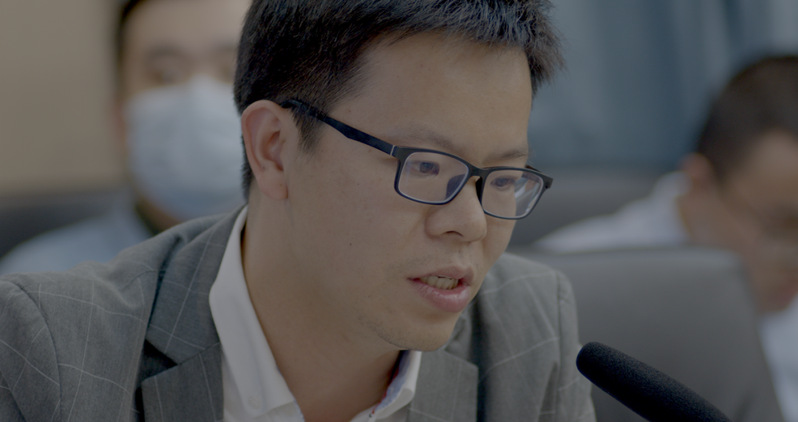
“I believe that documentaries not only have academic significance, but also serve as a channel for young students to understand the world. For teachers and scholars in universities, documentaries can meet the needs of their academic temperament. Furthermore, documentaries are essential to comprehensive universities, especially Zhejiang University, and will be an important text in future teaching and research fields.” Said Researcher Zhang Yong at Zhejiang University.
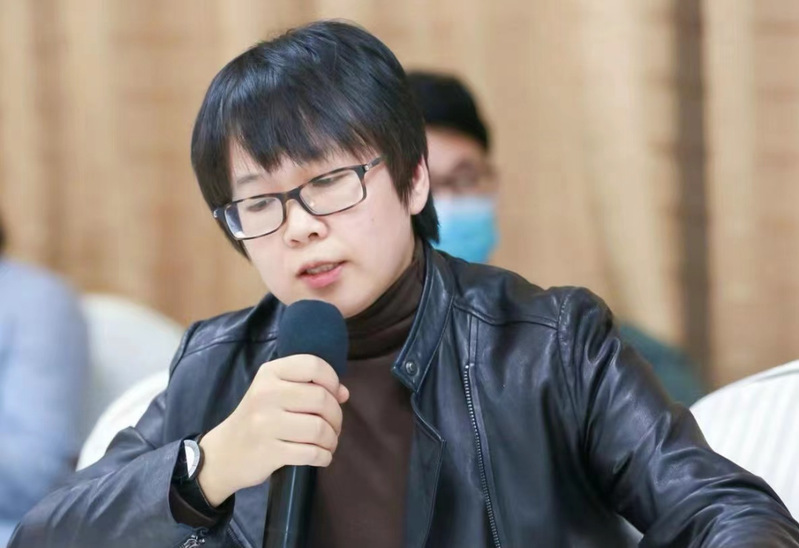
“The theme of the disabled is unique and challenging, both visually and ideologically. In the context of China, discussing and showing the lives of the disabled requires tremendous courage and strength. The athletes in the film earn a living and gain respects through sports, which is intimately linked to Chinese culture and real life. Every disabled person is a unique individual, and society needs to be tolerant enough to accept and support these individuals with unique personalities.” Said Researcher Luo Ting at Zhejiang University.
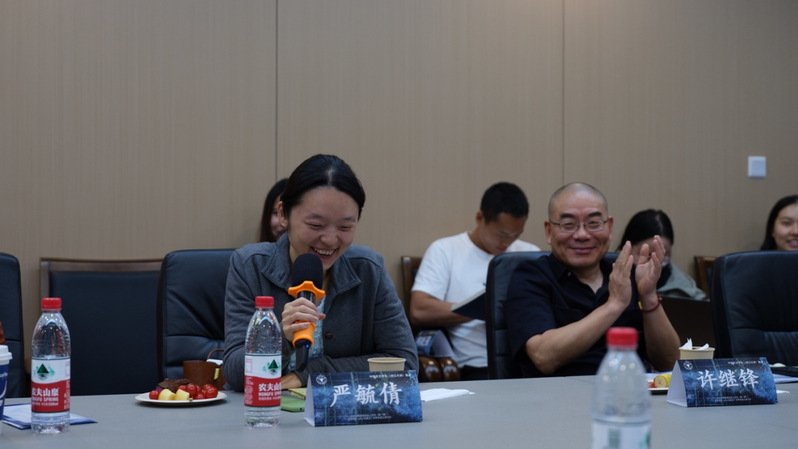
“Director Jin faces enormous challenges in filming as he presents the lives of people with disabilities from an external, non-disabled perspective. This involves complex ethical and moral issues about how to ensure the rationality of filming and respect the dignity of the subjects. The perspective I set for myself to examine this documentary is ‘incompleteness and obstacles, body and environment’. The ‘incomplete’ state of the bodies with disabilities is defined by the obstacles in their surrounding environment. Water has become an environment that makes them feel at ease, where they can re-examine and recognize their bodies, feel complete and accepted.” Said Deputy Researcher Yan Yuqian at Zhejiang University.
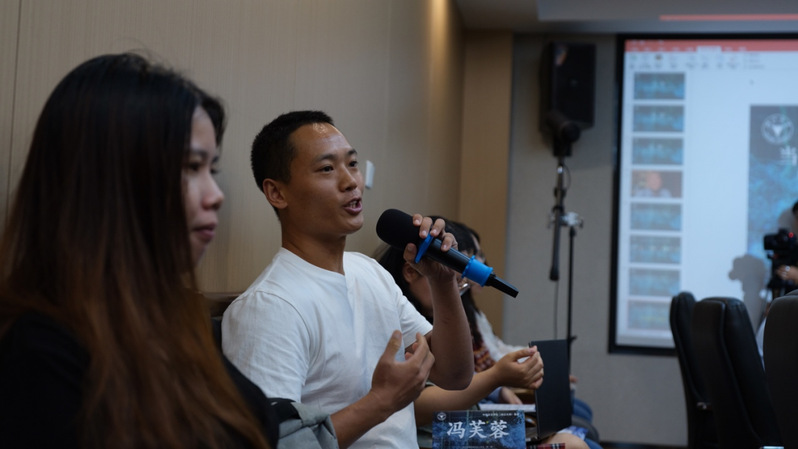
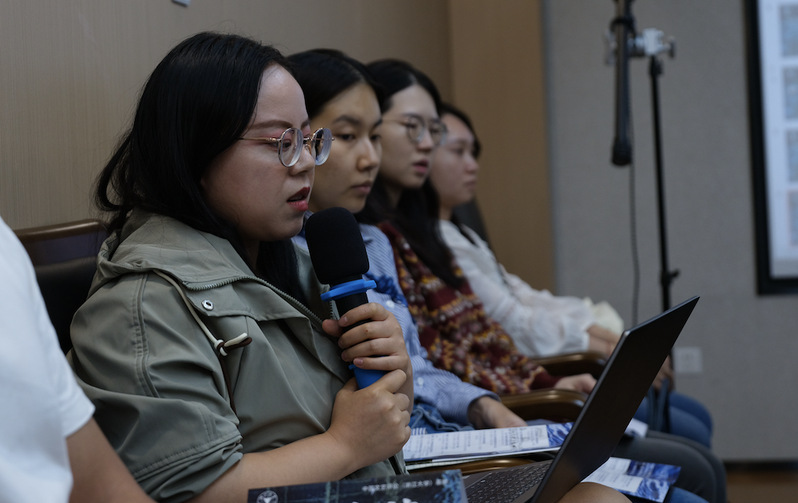
Postdoctor Qiu Yueqiang and Feng Furong at ZJU’s College of Media and International Culture analyzed the realistic and aesthetic significance of the documentary film “Above Water”. Finally, Jin Xingzheng, the director of the film, expressed gratitude to the experts and scholars present for their analysis and evaluation of the film. Professor Wang Jie then gave a concluding speech.
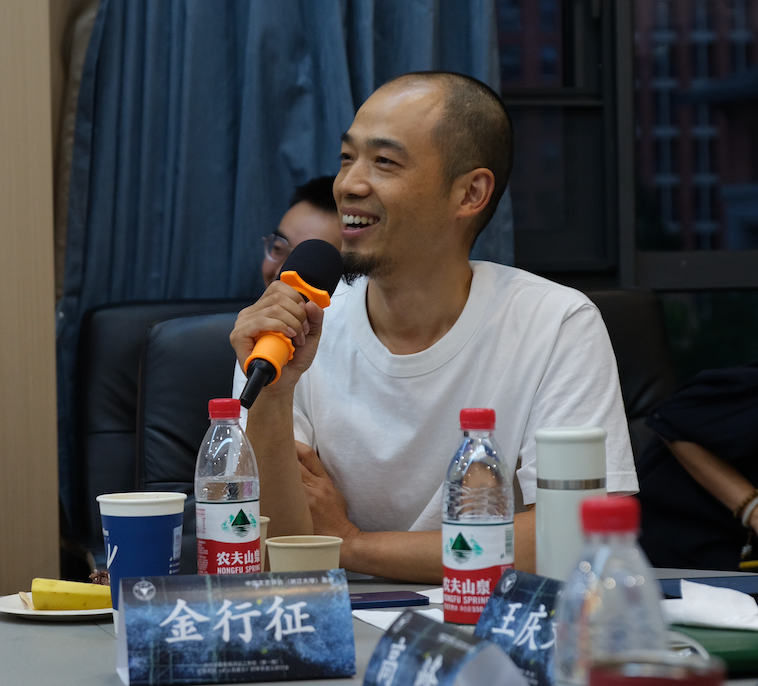
“Above Water” was selected as a key topic for the “14th Five Year Plan” documentary by National Radio and Television Administration, as well as Zhejiang Provincial Culture and Art Development Fund in 2019. It was also a candidate for the 2019 IDF venture capital and the 2018 Guangzhou International Documentary Festival “China Story” International Proposal Conference.

